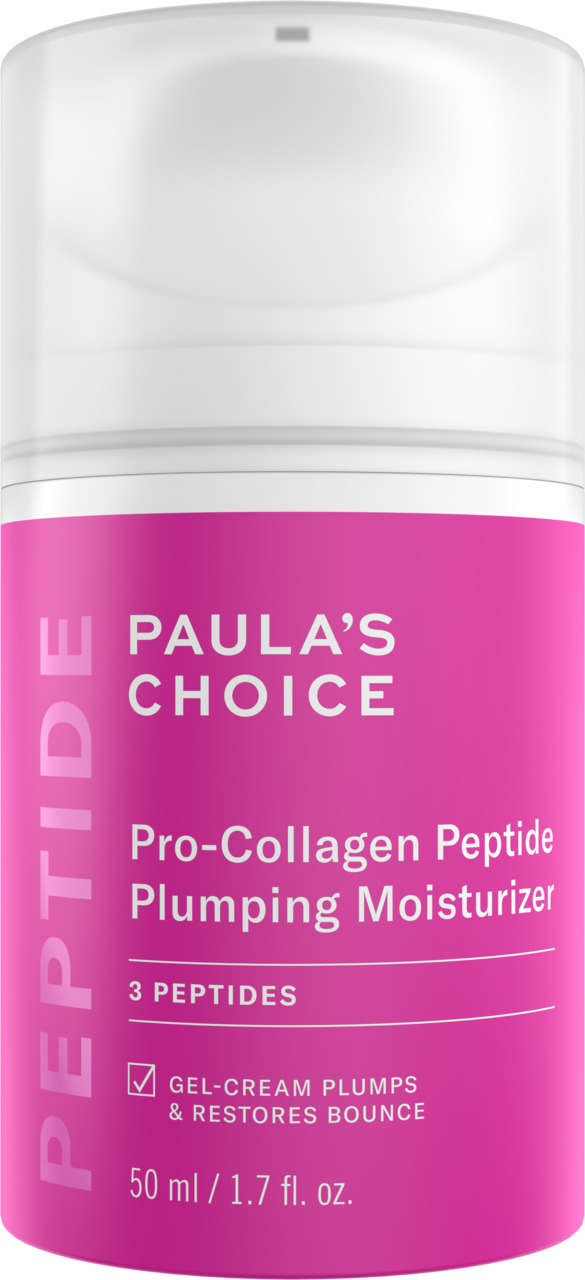
Peptides are considered true all-rounders in modern skin care. The short chains of amino acids are essential building blocks of proteins such as collagen, elastin and keratin and play a crucial role in the texture, strength and elasticity of the skin. Although they occur naturally in the body, peptides for cosmetic applications are synthetically produced to target specific skin needs. This article focuses on how peptides work, which skin problems they improve and how they can be optimally combined.
What are peptides and how do they work?
Peptides are cell-communicating ingredients that send targeted signals to the skin. Through this communication, they promote the formation of healthy fibroblasts (collagen-producing cells) and can thus visibly improve the firmness of the skin. Depending on the type, they support different functions:
Signal peptides such as hexapeptide-5 stimulate the production of collagen and elastin, making skin firmer and more elastic.
Carrier peptides transport important trace elements (such as copper) to the cells and thus promote wound healing and regeneration.
Neurotransmitter-inhibiting peptides can relax expression lines by reducing muscle contractions.
Enzyme-inhibiting peptides protect the skin from enzymatic breakdown of collagen and elastin.
Antimicrobial peptides strengthen the skin’s protective barrier and have an anti-inflammatory effect. Modern formulations make peptides particularly effective. For example, the combination with fatty acids improves their ability to be absorbed into the skin and prevents enzymatic breakdown.

Which skin problems can be treated with peptides?
Peptides are versatile and can specifically help with the following skin problems:
Fine lines and wrinkles: They boost collagen production and smooth the skin.
Loss of firmness and volume: Due to the buildup of elastin and collagen the skin visibly strengthened.
Sensitive and dull skin: strengthen thanks to its soothing properties Peptides strengthen the skin’s protective barrier and promote supple, radiant skin. Particularly advantageous: Peptides are suitable for all skin types and can also be used safely during pregnancy and breastfeeding.

How can peptides be combined correctly?
Peptides are easy to incorporate into any skin care routine, but there is one combination that should be avoided: copper peptides and vitamin C should not be used together. The antioxidant effects of vitamin C may reduce the effectiveness of copper peptides.
For optimal results, we recommend a coordinated skin care routine that combines peptides with moisturizing ingredients such as hyaluronic acid or barrier-strengthening ceramides.
Other areas of application
Peptides are not only versatile in skin care, but also in other areas of cosmetics:
Lip care: Lip products containing peptides moisturize, add volume and nourish intensively.
Hair care: Peptides in shampoos and treatments can stimulate the scalp, strengthen hair roots and prevent hair loss.
Eyelash care: Serums promote longer, stronger eyelashes and improve density.
Peptides have established themselves as indispensable ingredients in cosmetics. Their ability to act specifically at the cellular level makes them an essential component of any effective skin care routine. With a well-thought-out combination, the benefits can be fully exploited and the skin can be given a healthier appearance


